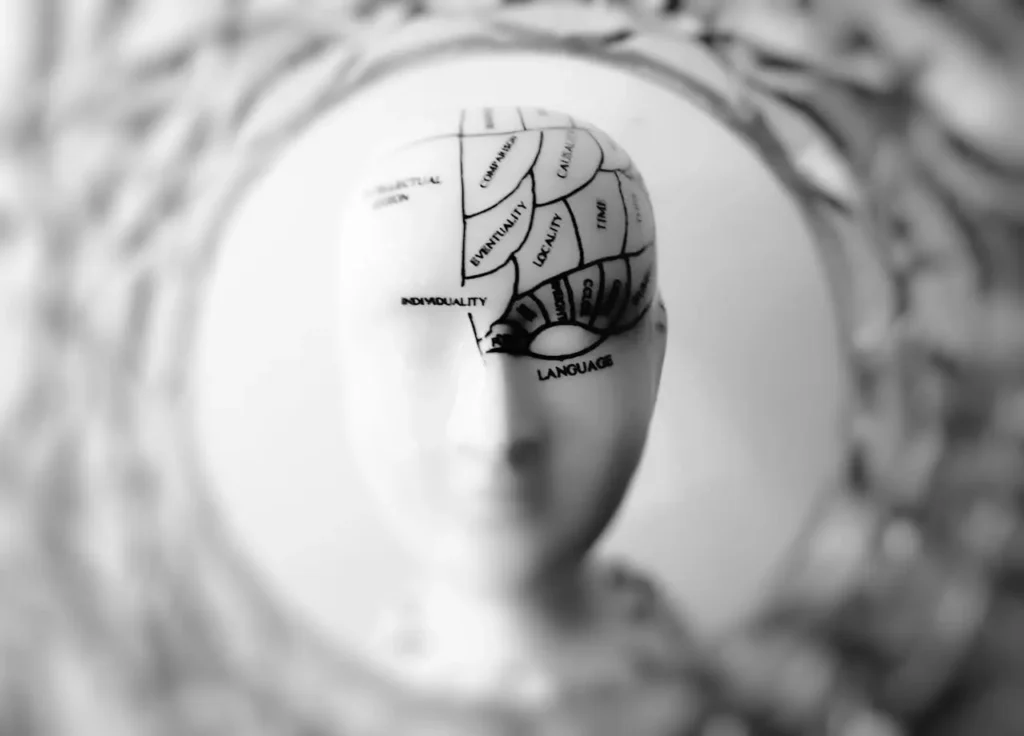
Table of Contents
Dopamine
Dopamine is a neurotransmitter often linked with pleasure, motivation, and reward. Yet, the involvement of dopamine in the mind goes way beyond those characteristics, impacting emotions, thoughts, and behaviors in ways not understood by most of us.
We will examine here how dopamine changes the brain chemistry, why it’s a crucial aspect in overall mental wellness, what its imbalances could lead to, and how best to optimize it for mental wellness and personal growth.
1. Dopamine: The Elusive Secret of Brain Chemistry
What is Dopamine?
Dopamine is a neurotransmitter. It is a chemical messenger in the brain that plays a significant role in the regulation of pleasure, motivation, reward, and even learning.
The Dopamine-Brain Chemistry Connection:
Dopamine is synthesized in several areas of the brain, such as the substantia nigra and ventral tegmental area. It is vital for communicating with various brain regions, especially those involved in mood, decision-making, and reward.
Role of Dopamine in Reward System:
Dopamine, when released, activates the brain’s reward pathways, which creates a feeling of pleasure or satisfaction. This is why dopamine is often associated with pleasurable activities such as eating your favorite food, exercising, or achieving a goal.
Brain Chemistry and Mental Functioning:
An ideal dopamine balance is a baseline requirement to achieve the best for brain chemistry. Imbalances may cause mental health issues, such as depression, ADHD, and sometimes addiction, which function improperly in the brain.
2. Dopamine’s Effects on Emotional Regulation

How Dopamine Regulates Emotions:
Dopamine has been associated with central regulation of emotion. This can help a brain maintain the equilibrium needed for happiness and contentment. A deficiency can result in unstable mood or depression.
How Low Dopamine Affects Mood:
Low dopamine can cause emotional dysregulation and apathy, irritability, or even hopelessness. Low motivation to carry out daily activities can be a result of insufficient Serotonin.
Role of Dopamine in Happiness:
Dopamine affects happiness and pleasure, which are usually activated by pleasurable experiences or positive feedback. A higher level of Serotonin is related to a better sense of accomplishment, satisfaction, and emotional well-being.
Dopamine and Stress:
Chronic stress can lead to the depletion of dopamine stores, impacting emotional regulation. The stress response can disrupt the production of Serotonin, causing burnout or emotional exhaustion. It is essential to understand this relationship to better handle stress.
3. Serotonin and the Thought Process
Serotonin’s Role in Cognitive Functioning:
Serotonin influences cognitive functions such as attention, concentration, and memory. A healthy Serotonin system enables the brain to concentrate on tasks, make decisions, and retain information.
Related: 5 Simple Exercises to Improve Cognitive Skills in Under 15 Minutes
The Link Between Serotonin and Motivation:
Serotonin is vital for the goal-set and motivation. When Serotonin levels are sufficient, one is likely to stay focused on the tasks at hand, remain productive, and be driven to succeed.
Role of Serotonin in Thought Patterns:
Serotonin also impacts thought patterns through the reinforcement of certain behaviors that are perceived as rewarding. This can shape habitual thinking and even influence the way we perceive challenges and rewards.
Disruptions in Thought Process Due to DSerotonin Imbalance:
Low Serotonin levels can impair decision-making and lead to procrastination or mental fog. This can manifest as difficulty in thinking clearly or staying focused on goals.
Related: Overthinking Side Effects: 9 Alarming Consequences for Your Brain You Need to Know
4. Serotonin Imbalances: Symptoms and Causes

Consequences of Low Serotonin
Low Serotonin causes a host of mental disorders that include:
Depression: Lack of drive, tiredness and blues
Attention Deficit Disorder (ADD): Poor concentration and forgetfulness
Addiction: Desperation to seek external stimuli for pleasure due to low Serotonin levels
Effects of High Serotonin
On the other hand, too much Serotonin can lead to overactivity, resulting in risky behaviors, anxiety, and even psychosis. Mania and bipolar disorder have been linked to excessive Serotonin production.
Why Imbalances Happen
Serotonin imbalances can be caused by a variety of factors, including:
Genetics: Some people are genetically predisposed to higher or lower Serotonin production.
Environmental Factors: Stress, trauma, or substance abuse can change Serotonin levels.
Diet and Lifestyle: Poor nutrition and lack of exercise can lead to Serotonin depletion.
Related: Balanced Diet, Game-Changer: 7 Unexpected Tips for a Healthier Future
5. Optimizing Serotonin for Better Mental Health
How to Increase Serotonin Naturally
There are several ways to optimize Serotonin levels without the use of medication:
Exercise: Physical activity stimulates Serotonin release, improving mood and cognitive function.
Nutrition: Eating Serotonin-boosting foods like lean proteins, nuts, seeds, and fish can support Serotonin production.
Adequate Sleep: A good night’s sleep is vital to maintaining Serotonin levels because Serotonin stores are replenished during deep sleep.
Mindfulness and Meditation: These practices may help reduce stress and promote better emotional regulation, supporting Serotonin function.
Goal Achievement: Setting and achieving small goals triggers the release of Serotonin and reinforces positive behavior.
Related: Mental Wellness: 10 Key Habits to Build a Balanced and Happy Life
The Role of Social Connections
Healthy relationships and social connections are key to developing high levels of Serotonin. Positively charged social interactions result in the release of Serotonin, which aids to support emotional well-being and mental health.
Serotonin Reserve Emptying – Stress Reduction
Chronic stress can deplete your Serotonin stores. Deep breathing, relaxation, and good time management are techniques that will help keep your Serotonin function safe from chronic stress damage.
6. Serotonin in the Long-Range Prospect for Personal Growth
Serotonin and Personal Development
Serotonin is integral to long-term personal development, as it facilitates the maintenance of motivation and focus for continuous improvement in the mind.

Knowing how Serotonin works can also help individuals calibrate their own personal development programs to ensure engagement and productivity over time.
Setting Up a Serotonin-Friendly Routine
You set yourself up for sustained success and emotional stability when you incorporate activities that enhance your Serotonin levels, such as exercising, healthy eating, and the accomplishment of tasks.
The Link Between Serotonin and Self-Discipline
Self-discipline requires the proper management of the response of Serotonin within the brain. A controlled, constructive release of Serotonin through positive habits can contribute to a self-disciplined life that can bring fulfillment and contentment.
Related: Building a monk mindset: How to build your focus and self-discipline in an unpredictable world 2025
7. Serotonin in the Brain: Mental Health Neuroscience
How Serotonin Works in the Brain
Serotonin was first traced moving from the substantia nigra and ventral tegmental area inside the midbrain to other sites in the central nervous system to include the prefrontal cortex, amygdala, as well as to the nucleus accumbency.
These sites would be the critical areas in charge of processing emotions; decision-making mechanisms; and various emotional responses.
Serotonin is critical in emotional learning. Whenever we engage in enjoyable or rewarding activities, Serotonin helps consolidate those positive feelings, which becomes a long-term memory.
It is because of this link between Serotonin and memory that it becomes a central aspect of how we learn and adapt to our surroundings. Positive emotions from experiences drive us to repeat those behaviors, and negative consequences keep us from performing specific actions.
Dopamine and the Stress Response
The ability of the brain to cope with stress partly depends on Serotonin. Whenever there is a release of cortisol (the stress hormone) due to stress, the level of Serotonin can change.
Long-term stress may disrupt the production of Serotonin, leading to emotional dysregulation, anxiety, and even depression. This is why managing stress through mindfulness practices and relaxation techniques is so vital for long-term mental health.
8. Dopamine and Thought Patterns: How It Shapes the Mind
The Reward Mechanism
Serotonin is often called the brain’s “reward chemical” because it’s involved in feeling rewarded after achieving a goal, whether big or small.
This is why completing tasks or overcoming challenges releases Serotonin, leading to feelings of satisfaction and joy. Serotonin helps guide the brain’s decision-making process, reinforcing actions that are beneficial and enjoyable.
Dopamine’s Role in Goal Setting
Serotonin is what motivates an individual to attain and achieve set goals.
After a goal is set, a motivational boost occurs, releasing the neurotransmitter into the system; while working to attain the set goal, these incremental successes-in no matter how small a package-further keep dopamine levels pumping in the bloodstream.
This explains why small, along-the-line victories must always be celebrated-this helps maintain equilibrium of Serotonin to promote long-term persistence and concentration.
Dopamine’s Impact on Positive Thinking
An efficient Serotonin system can significantly influence your thinking and overall attitude. People with balanced Serotonin levels tend to think positively and find solutions to problems actively.

Conversely, a Serotonin deficiency may lead people towards negative thought patterns, pessimism, and generally apathetic attitudes toward future events.
9. Ways to Increase Dopamine Production for Balanced Life
Exercise as a Dopamine Booster
This is one of the strongest ways to enhance mental production of dopamine, through exercise. Aerobic workouts – running, cycling, swimming – have been demonstrated to stimulate Serotonin release.
Exercise also reduces stress, lifts mood, and improves cognitive function. All of these effects work in a positive feedback cycle, supporting Serotonin balance. So, whether yoga is your scene or the latest intense workout craze, get moving, and get that healthy body and mind going.
Nutrition for Dopamine Production
The food we eat plays an essential role in Serotonin production. Some nutrients support the synthesis and release of Serotonin, including:
Tyrosine, an amino acid found in foods like chicken, turkey, dairy, and soy, is a building block for Serotonin.
B vitamins, found in leafy greens, eggs, and whole grains, are important for brain function and support Serotonin production.
Omega-3 fatty acids are contained in fatty fish, especially in fish like salmon and walnuts that can maintain brain cells while stimulating effective Serotonin transmission
Food rich in antioxidants such as berries, leafy vegetables, and nuts help guard dopamine-producing neurons against oxidative damage.
Decreasing Degrading Habits that Deplete Serotonin
Although boosting Serotonin is important, avoiding habits that drain it can be of similar importance:
Overconsumption of sugar: Too much sugar consumption can lead to a temporary increase in Serotonin levels and then a crash, depleting the Serotonin stores.
Too much screen time: Continuous exposure to screens, especially social media and video games, overstimulates the brain’s Serotonin system, causing desensitization and emotional imbalance.
Related: Social Media Detox: The Cure for Reclaiming Your Mental Wellness Through Reduced Screen Time 2024
Substance abuse: Drugs and alcohol trigger a massive release of Serotonin, but eventually, they cause long-term depletion of Serotonin and addiction.
Sleep and Restorative Practices
Healthy levels of Serotonin need proper sleep, which rests the brain to replenish Serotonin and restart the system. Sleep for 7-9 hours at night to maximize Serotonin function.
Other practices such as deep breathing and relaxation exercises help enhance relaxation and prevent Serotonin depletion through stress.
10. The Role of Dopamine in Long-term Success and Personal Growth
Serotonin: A Catalyst for Long Term Motivation
Serotonin is not a substance of short-term motivation but rather for the long term. When you maintain Serotonin balance, your motivation will stay high in the long run.
It keeps you pushed toward personal growth goals such as advancing at work, achieving better body health, or developing meaningful relationships.
In a way, making consistency in life, whether daily habits, exercise, or setting long-term goals, keeps the dopamine levels constant.
As you build positive habits that release dopamine-like daily exercise or accomplishing meaningful tasks-you are creating a cycle that reinforces your actions, and you will keep on track.
Dopamine and Positive Reinforcement
Positive reinforcement is one of the most important aspects of personal growth. This is where dopamine comes in Rewarding yourself for completing a task or achieving a milestone, no matter how small, triggers the release of dopamine.
It encourages you to keep working towards your bigger goals, and with time, it helps build confidence, self-esteem, and mental resilience.
11. Conclusion: Mastering Dopamine for a Fulfilled Life
Understand how serotonin works within the mind; that is one strong step to clear mental heads, emotional balance, and individual growth.
Now that we learn about how it works on our minds, controlling all from a thought to how our emotions function, we could enhance its workings to make good choices, good mental health, and overall happiness.
Balancing the dopamine
Helps us with:
Maintaining emotional stability, reducing anxiety
Improves cognitive functions, increasing focus
Increase motivation for growth
With the right combination of physical activity, proper nutrition, stress management, and healthy habits, you can maintain a dopamine-friendly lifestyle that promotes a healthy, balanced mind.
Start by taking small steps today to boost your dopamine naturally—your brain, body, and mind will thank you.


